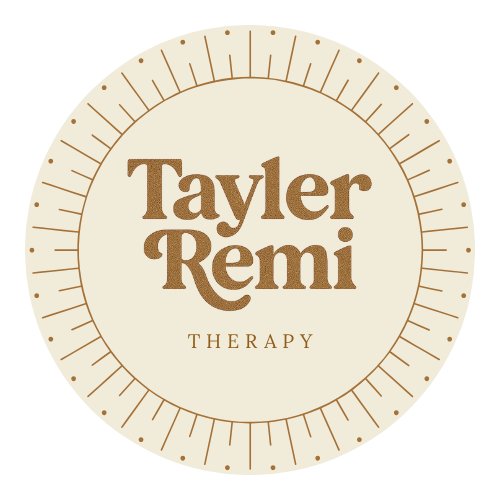
Neurodivergent Therapist in Manchester & Online
Trauma & Narcissistic Abuse Specialist
Hi, I’m Tayler.
I’m a relational, integrative therapist, and someone who knows firsthand what it’s like to feel too much, not enough, or like you’re disappearing inside your own life.
I’m not here to fix you. I’m here to meet you as you are, however you process, whether that’s through feelings, thoughts, or somewhere in between.
Clients tell me they feel able to show up fully with me - messy, scared,, soft, numb, fierce, grieving, funny - without needing to explain or translate every part of themselves.
You’re welcome here, no matter your age, background, neurotype, or identity.
If you’re curious to know more about me, keep reading - I’ll share why this work matters to me, who I’m here for, and a glimpse of the person behind the therapist.

Beyond the therapy room
It matters to me that you know: I’m a real person here with you, not just a professional title or a name on a screen.
In traditional therapy training, we’re often told to keep ourselves entirely out of the picture, to stay neutral and blank. But honestly? I find that a little strange. How can I expect you to bring your most tender, vulnerable parts into the room if you don’t even know a little about the human sitting across from you?
Of course, I hold firm boundaries around what I share, because this space is about you. But I also believe therapy works best when it’s human-to-human, not expert-to-client.
So if you’re wondering who I am beyond the therapy chair: I’m someone who listens to Fleetwood Mac on repeat, befriends every dog I meet (truly, no exceptions), and regularly falls down history podcast rabbit holes. I’m often found hunting for 70s treasures at flea markets or curled up with my two dogs, halfway through yet another Gilmore Girls or New Girl rewatch.
At the end of the day, this is human work, and I’m here to do it with you.
Why I do this work
I know what it’s like to shrink, to go numb, to feel ashamed - and to start performing just to survive, when you realise you’ll have to save yourself.
Like many therapists, I came to this work after wrestling with my own pain, but over time, I realised how much I needed to work through myself to become the kind of therapist I believe in - the kind I wish I’d had when I was younger.
I’ve done, and keep doing, that work. So when I’m with you, I’m not coming as someone above you, or someone unfinished and spilling over. I’m someone who knows the terrain, and is steady enough to walk alongside you.
I know what it’s like to walk into therapy and wonder: Will you actually see me? Will you help me hold this, or will you just sit there?
I’m here, not as a fixer or expert, but as someone who’s walked the road, and who’s ready to walk beside you.
I might be the therapist for you if you value…
A therapist who sees the bigger picture - aware of how systems, identities, neurodivergence, disability, and cultural difference shape pain, with humility about the histories I don’t claim.
Someone who notices what others miss - tracking patterns, holding deep curiosity, and noticing not just what’s happening but what’s quietly alive underneath, especially where brilliance and burnout coexist.
A social justice lens that’s lived, not performative - holding care and accountability around power, difference, and how politics shape the room and the wounds we carry.
Relational flexibility and depth - offering space for open exploration or structured support, while honouring the nonlinear realities of burnout, disconnection, identity shifts, and recovery.
My training & background
In my experience, most people coming to therapy care more about the relationship than the list of qualifications.
Don’t get me wrong - I’m proud of my background and training. I’ve worked in this field for a long time, and I take professional accountability seriously.
But at its heart, therapy isn’t about letters after a name.
It’s about: Will you actually see me? Will you stay real with me? Will you judge me or expect me to ‘get better’? Will you challenge me - but with care, not coldness? Will you see me as more than a label, not just pathologise me or assume I’m broken?
For some people, knowing the details helps them feel safe. For others, it feels overwhelming or beside the point. Either way, you’re welcome here.
If you do want to know more, you can explore my training and experience below.

